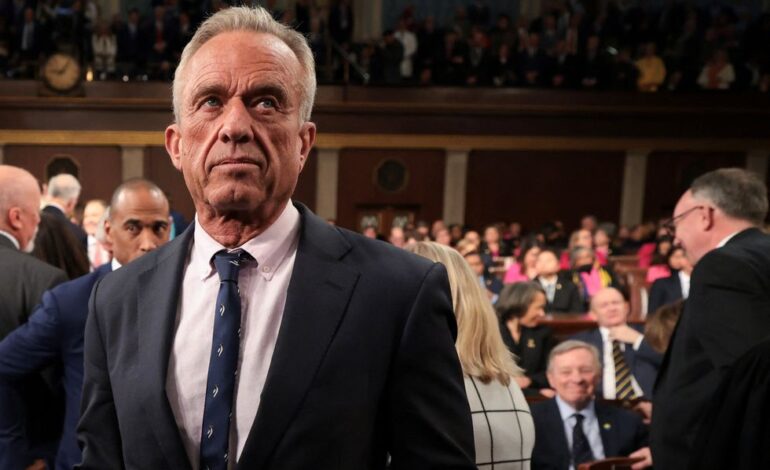RFK Jr.’s Controversial Claims on Tylenol Ignite Public Outrage

Robert F. Kennedy Jr., the U.S. Health Secretary, has sparked significant backlash following his controversial announcement regarding research that allegedly links the widely used over-the-counter medication Tylenol to autism during pregnancy. His claims have been met with swift condemnation from both political allies and opponents, with many labeling him a “lunatic” and “insane clown.”
The controversy erupted on March 15, 2024, after Kennedy’s announcement during a hearing that quickly became contentious. Social media reactions were intense, with users on platforms such as X and Bluesky expressing outrage over the implications of his statements. The fallout was immediate, as shares of Kenvue, the maker of Tylenol, plummeted more than 15% following the news of Kennedy’s claims.
Josie Ensor, Chief U.S. Reporter for The Times, voiced her concern on X, stating, “As if pregnant women don’t have enough to feel anxious and guilty about. Now it’s taking painkillers.” This sentiment was echoed by financial trader Tom Heardon, who remarked on the platform that Kennedy was claiming Tylenol could cause autism in pregnancy, leading to a considerable drop in the company’s stock value.
Critics have taken to social media to denounce Kennedy’s assertions. Denise Wheeler, a writer on Bluesky, remarked, “F— RFK Jr. He’s intentionally putting women at risk with this bs.” She pointed out that the connection between autism and Tylenol is unfounded, emphasizing that autism has been documented in humans long before the medication was introduced.
Brandi Bennett, a privacy and tech attorney, expressed her frustration, stating, “Fun fact: my pregnant sister is on daily Tylenol to reduce her risk of preeclampsia. F— you, RFK Jr.” The overwhelming response underscores the fears many have regarding the potential impact of misinformation in healthcare.
Dr. Nisha Patel, a medical professional, criticized Kennedy’s approach, saying, “This is a slap in the face to every woman who has ever been pregnant. There is no proven link between Tylenol use in pregnancy and autism.” She highlighted that Tylenol is one of the few medications considered safe for pregnant women, and the dissemination of such claims could lead to unnecessary fear and anxiety.
In response to the outcry, McNeil Consumer Healthcare, a division of Kenvue, firmly disputed the notion that Tylenol could cause autism when used during pregnancy. The company reiterated that no reputable research has established any connection between the medication and autism.
The public reaction to Kennedy’s announcement reflects a broader concern about the spread of misinformation in health-related discussions. As the debate continues, it remains clear that the stakes are high for pregnant individuals who rely on safe medical advice during their pregnancies.






